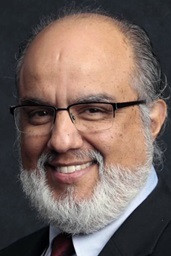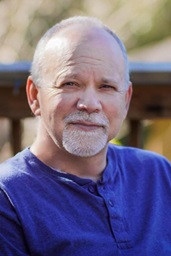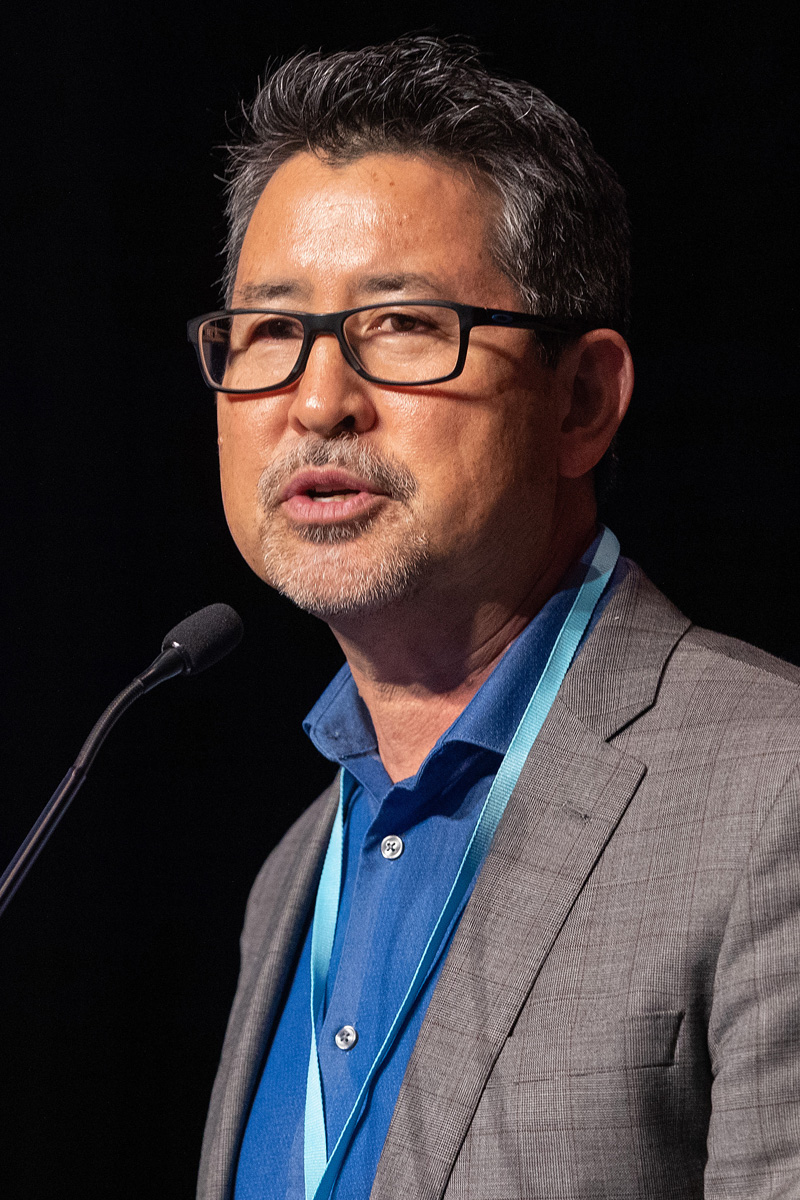
The Rev. John Oda, director of the Asian American Language Ministry Program, Global Ministries. Photo by Mike DuBose, UM News.
The plan’s committee quickly came together and created the AALM COVID-19 Resiliency Fund. As soon as the resiliency fund was launched, grant applications began to pour in from all corners of the country.
The Asian American Language Ministry Plan is one of the six National Ethnic Plans of The United Methodist Church. This plan works with all of the Asian American United Methodist churches across the U.S. to support and strengthen their ministries.
One COVID-19 Resiliency Fund grant went to the Laotian and Thai community in the Upper New York Conference. The Rev. Sonexay Chanthasone, or Pastor Sean as is he also known, heard about the fund early on and knew he had to apply for a grant to help his church members.
Chanthasone, who is the chair of the Lao/Thai United Methodist Caucus, worked with the plan to complete the grant application. He serves one church in Upper New York Conference but works with three other congregations in the area that are Laotian, Thai, Karenni and Nepali.
“The state of New York has been hit hard with this virus,” he explained. “There is a huge need for food with our new refugee communities. I have 30 or 40 different families that simply need food because the local food banks have been shut down during this pandemic and because many people have lost their jobs.”
With their resiliency fund grant, Chanthasone has been able to buy and deliver groceries to many families who need food. He also takes that opportunity to spend time with them and offer communion, being sure to use social distancing protocols while he visits.
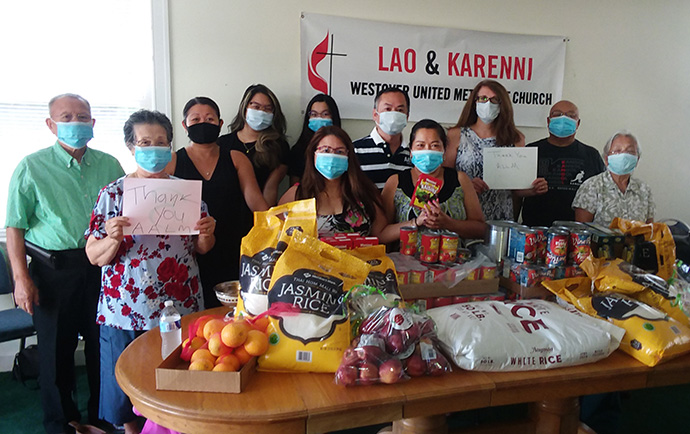
The Lao and Karenni United Methodist Church of the Upper New York Conference say “thank you” for their AALM Resiliency Fund grant. Displayed in front of them are some of the groceries purchased with the grant, which were distributed to families in need. Photo by the Rev. Sonexay Chathasone.
“Most people do not have the means to buy a computer,” said Savanna Thaing, the lay leader at Point Pleasant and a member of the Cambodian congregation. “They really want to stay connected to the church.”
Pastor Viseth Hou, who serves part-time at Point Pleasant and part-time at the Stockton Cambodian United Methodist Church, added, “Our people are very isolated because of the language barriers. We wanted to continue to bring the powerful Word of Christ to them so we started an outdoor service and applied for this grant to help get everyone connected online.”
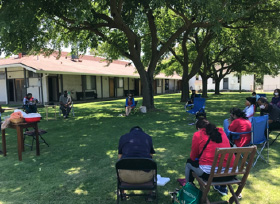
The Cambodian congregation at Point Pleasant United Methodist Church in the California-Nevada Conference holds their Sunday morning outdoor worship service while observing social distancing protocols. Photo by Savanna Thaing.
We are going to see an ongoing need from churches for the next year and beyond because of the COVID-19 pandemic. We were so grateful that we were able to assist so many churches in such a short amount of time, but unfortunately we only had a limited amount of funding to address the myriad issues facing these churches across the country.
Commentaries
UM News publishes various commentaries about issues in the denomination. The opinion pieces reflect a variety of viewpoints and are the opinions of the writers, not the UM News staff.
It has been tough for many churches. The most powerful thing that we continue to do is lift up all these churches in our prayers. Some funding can also go a long way.
Oda is director of the Asian American Language Ministry Plan of The United Methodist Church. For more information, visit https://www.umcmission.org/serve-with-us/partnerships/aalm.
News media contact: Linda Bloom, 615-742-5470 or [email protected]. To read more United Methodist news, subscribe to the free daily or weekly digests.
Like what you're reading? Support the ministry of UM News! Your support ensures the latest denominational news, dynamic stories and informative articles will continue to connect our global community. Make a tax-deductible donation at ResourceUMC.org/GiveUMCom.

